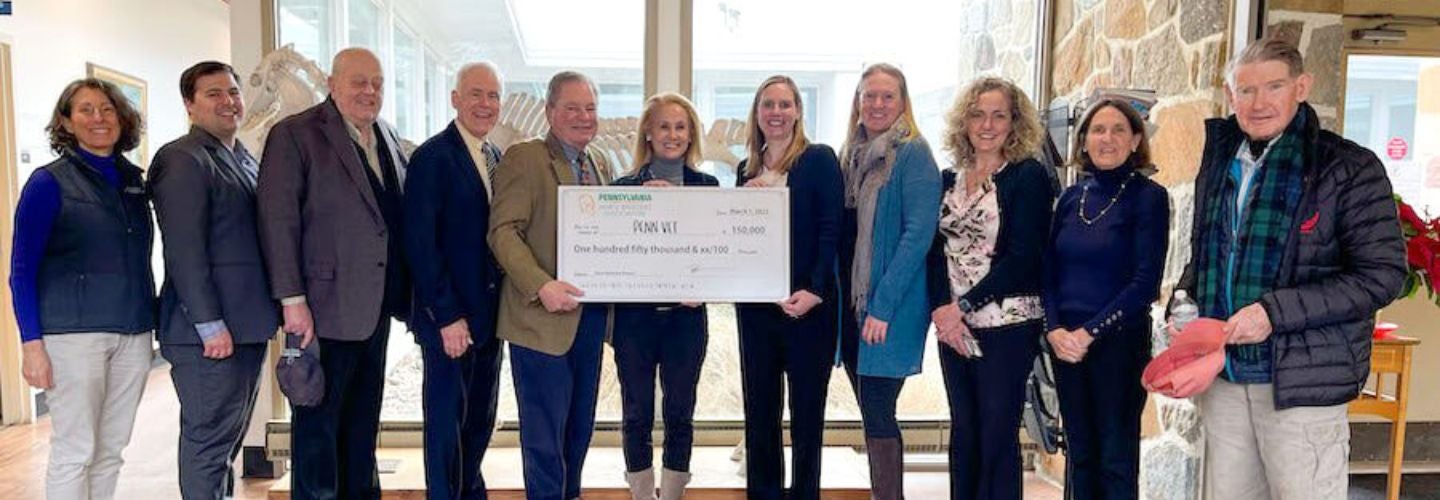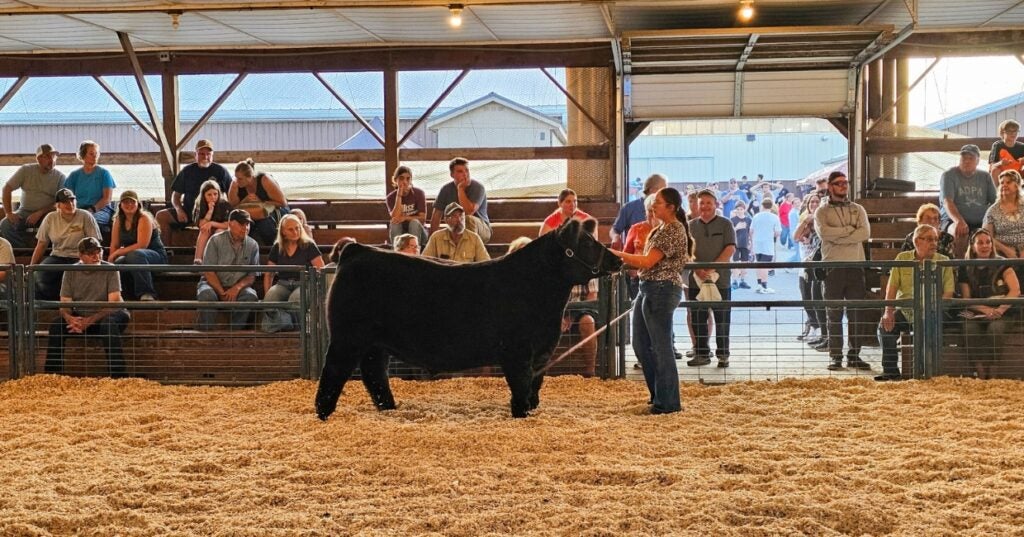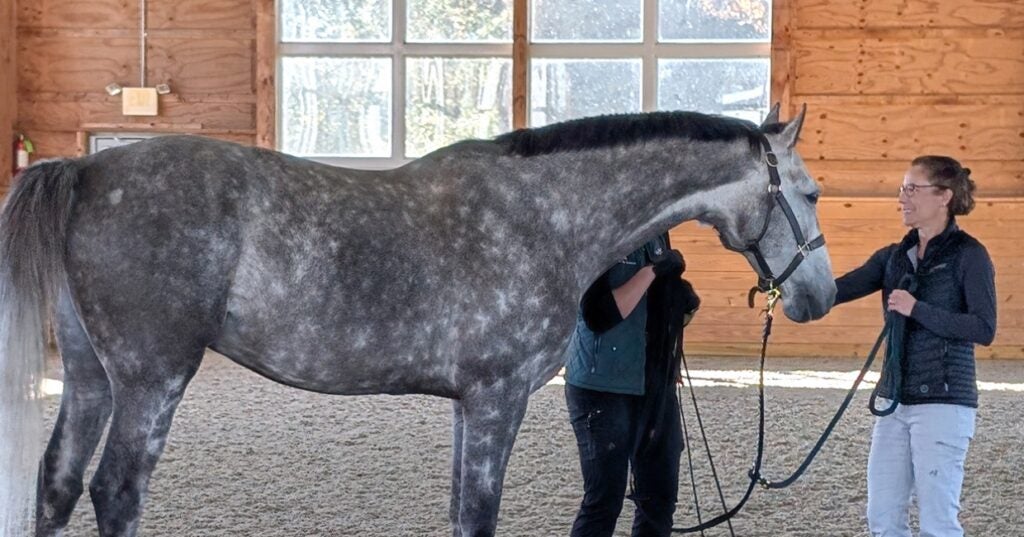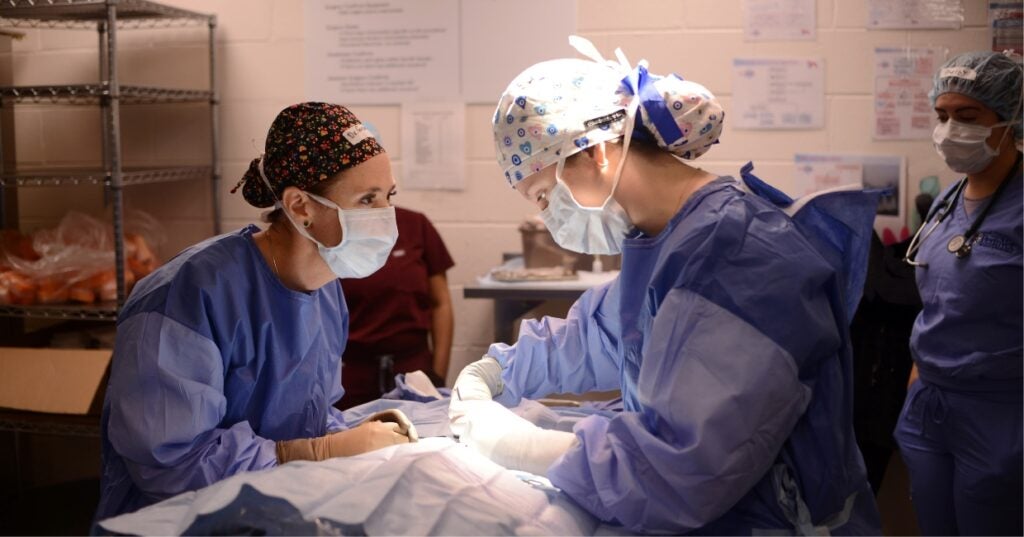PA Horse Breeders Donate $150,000 to Penn Vet’s New Bolton Center to Advance Biomarker, Blood Doping Research

KENNETT SQUARE, PA – The Pennsylvania Horse Breeders Association (PHBA) announced today a $150,000 donation to the Equine Pharmacology Laboratory at the University of Pennsylvania School of Veterinary Medicine’s (Penn Vet) New Bolton Center that will support continued revolutionary research in equine biomarkers.
The new round of PHBA funding – which will expand on the cutting-edge research that the PHBA helped to fund in 2018 – will bolster three key research initiatives focused on improving the health and safety of equine athletes and enhancing integrity in racing. One area of research seeks to identify novel mRNA biomarkers that can help proactively predict if a horse is at risk for injury, even for injuries that are difficult or impossible to detect using conventional methods. Ultimately, researchers hope to develop a rapid stall-side blood test that could be administered prior to a race, helping racing officials accurately detect horses that may be at an elevated risk.
The funding will also support Penn Vet’s sample collection for continued development of an Equine Biological Passport through the expansion of the Equine Pharmacology Laboratory’s BioBank. Samples from the BioBank are analyzed to determine baseline levels of blood-based biomarkers found in racehorses. Once established, these baseline levels can be used to determine if blood samples taken from a horse pre- or post-race show any variations from baseline indicative of illness, injury or prohibited substances.
“The PHBA is very proud to continue its partnership with Penn Vet by providing an additional grant of $150,000 to fund this incredibly important and timely research program,” said Deanna Manfredi, PhD, a member of the Pennsylvania Horse Breeders Association’s Board of Directors. “This research program has the potential to have a very positive impact on the sport we all love and ensure its continued success through advances in preventing breakdowns, promoting equine health, and enhancing racing integrity.”
“Studies are ongoing to develop an Equine Biological Passport using a variety of biomarkers,” said Dr. Mary Robinson, Director of the Equine Pharmacology Laboratory at New Bolton Center. “For example, we now have potential protein and mRNA biomarkers of extracorporeal shock wave therapy that are being investigated using our Equine Biobank samples. This work would not have been possible without the support of the Pennsylvania Horse Breeders Association, who have provided the funding to expand and maintain the Equine Biobank, and the support of the Pennsylvania State Horse Racing Commission for my laboratory.”
“I’m proud to see the continued collaboration between the Pennsylvania Horse Breeders Association and New Bolton Center. This partnership promotes integrity and safety in the horse racing industry,” said State Representative Christina Sappey, who represents the 158th State House District. “The highly advanced research developed by Penn Vet’s New Bolton Center is critically important to protect equine athletes, and PHBA’s generous support makes this possible. We’re fortunate to have both of these organizations that benefit all Pennsylvanians here in the 158th!”
In addition to the Pennsylvania Horse Breeders Association’s support, Penn Vet’s New Bolton Center is also seeking additional funding to further expand and accelerate this research program. Individuals or organizations who would like to support the program through a financial donation are encouraged to contact the a member of the Development Team.
About the PHBA
The Pennsylvania Horse Breeders Association (PHBA) is a not-for-profit organization founded in 1948 that advocates on behalf of Pennsylvania’s Thoroughbred breeding industry. The PHBA is responsible for all aspects of the Pennsylvania Breeding Fund, the official registration, marketing, and promotion of Pennsylvania-Bred thoroughbred race horses, as well as the maintenance of the official registry of PA-Bred race horses and Pennsylvania stallions. The PHBA provides a number of services to its members, including informational assistance, educational opportunities, and a variety of members-only social events.
Related News

New Bolton Center Surgeons Come Through for Howee the Steer and his Girl
Mallie Touchton was always a farm animal kid. Since she was 8, Mallie was raising and showing her own market livestock – pigs, goats, and dairy calves. Even though she…

Behind the Breakthroughs: Amy Johnson
Balancing clinical care with scientific inquiry, Penn Vet’s Amy Johnson leads efforts to decode the complexities of neurologic diseases in horses

Penn Vet’s Enhanced Approach to Teaching Primary Care Surgery Aims for Career-Ready Graduates
Brooklyn, a white Maltese dressed for warmth in a green frog hoodie, lay in anesthetized slumber under the bright lights of Ryan Hospital’s junior surgery suite. On one side of…
[June 14, 2018; KENNETT SQUARE, PA] – As part of its ongoing commitment to maintaining integrity in the horse racing industry, the Pennsylvania Horse Breeders Association (PHBA) has donated $300,000 to Penn Vet New Bolton Center’s Equine Pharmacology Laboratory to fund revolutionary research to detect gene doping in equine athletes. Gene doping involves the transfer or modification of genes or genetically modified cells of healthy human athletes, as well as equine athletes, for non-therapeutic purpose to enhance athletic performance.
The $300,000 donation from the PHBA will provide funding for Penn Vet’s multi-tiered, multi-year project. Elements of the project include continued research into potential protein and RNA-based biomarkers that have been identified as showing promise for detecting gene doping. The project will also include continued expansion of a BioBank that will be utilized to evaluate baseline levels of these blood-based bio-markers in active and injured race horses, as well as physiological changes in their musculoskeletal structure using New Bolton Center’s robotics controlled imaging system.
“Our members, all of whom are Pennsylvania thoroughbred horse breeders, have consistently stated that maintaining integrity in the sport of racing is one of their top priorities,” said Brian Sanfratello, Executive Secretary of the Pennsylvania Horse Breeders Association. “We are pleased to partner with New Bolton Center, an internationally renowned equine hospital and research institution, to fund this ground-breaking research and help combat gene doping.”
“We are proud of our record at New Bolton Center for remaining on the cutting edge of detecting and preventing the use of performance enhancing and illicit pharmaceuticals in equine athletes,” said Dr. Mary Robinson, Director of the Equine Pharmacology Laboratory at New Bolton Center.
“With this grant, we can continue to be a leader in protecting the integrity of horse racing. While gene therapy represents an important breakthrough for patients with disease-causing genes and rare genetic diseases, we need to be sure that we are taking steps to stay ahead of those who would seek to use these advances for illicit means.”
The $300,000 donation represents a significant investment for the PHBA and was championed by PHBA Board President Roger Legg and Board Member/Chair of the PHBA’s Medication Committee Deanna Manfredi. Deanna’s committee conducted extensive research on the issue and established it as a priority for the organization. Because the money is being allocated from the association’s share of the State Racing Fund, which is typically used for enhanced breeder awards and incentives, the PHBA had to seek approval of Pennsylvania’s State Horse Racing Commission. The Commission approved the PHBA’s request to provide the funding by unanimous vote at its monthly meeting on May 31.
“My fellow commissioners and I applaud the PHBA and the New Bolton Center for funding and undertaking this revolutionary research project to combat efforts to subvert fairness and integrity in the sport of horse racing,” said Russell Jones, a Commissioner of the State Horse Racing Commission in Pennsylvania. “The State Horse Racing Commission is committed to maintaining a fair and level, playing field, both for our fans and the vast majority of owners and trainers who play by the rules.”
About Penn Vet
Ranked among the top ten veterinary schools worldwide, the University of Pennsylvania School of Veterinary Medicine (Penn Vet) is a global leader in veterinary education, research, and clinical care. Founded in 1884, Penn Vet is the first veterinary school developed in association with a medical school. The school is a proud member of the One Health initiative, linking human, animal, and environmental health.
Penn Vet serves a diverse population of animals at its two campuses, which include extensive diagnostic and research laboratories. Ryan Hospital in Philadelphia provides care for dogs, cats, and other domestic/companion animals, handling more than 30,000 patient visits a year. New Bolton Center, Penn Vet’s large-animal hospital on nearly 700 acres in rural Kennett Square, PA, cares for horses and livestock/farm animals. The hospital handles more than 6,300 patient visits a year, while our Field Services have gone out on more than 5,500 farm service calls, treating some 22,400 patients at local farms. In addition, New Bolton Center’s campus includes a swine center, working dairy, and poultry unit that provide valuable research for the agriculture industry.
